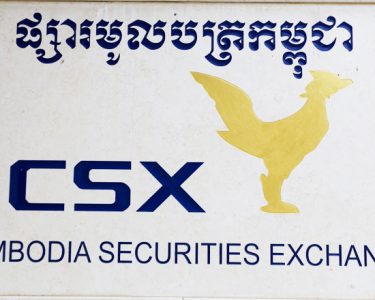Cambodia Investment Reiew
Cambodia is laying the foundation for a more dynamic and inclusive financial ecosystem with the drafting of a new 10-year Securities Sector Development Masterplan (2025–2035). Spearheaded by the Securities and Exchange Regulator of Cambodia (SERC) in partnership with the Asian Development Bank (ADB), the initiative aims to strengthen the country’s capital markets by addressing long-standing challenges through a comprehensive strategic framework.
The masterplan draws on a SWOT analysis of the existing financial infrastructure, insights from evolving market dynamics, and the sector’s potential to support Cambodia’s broader Vision 2050 and the United Nations Sustainable Development Goals. With institutional backing and multi-stakeholder input, the plan is expected to serve as a blueprint for developing a more robust, diversified, and forward-looking securities market.
Structural Limitations Undermine Market Appeal
Despite the Cambodia Securities Exchange (CSX) being operational since 2011, its ability to attract a wide base of domestic investors—particularly younger participants—remains constrained. As of Q1 2025, the exchange lists just 11 companies and supports approximately 60,000 trading accounts. Daily trading activity remains low, and a 10% daily price movement cap further limits short-term volatility, reducing appeal for more active traders.
These structural limitations are compounded by a lack of product diversity, with equities and a small number of bonds forming the bulk of available instruments. Although efforts have been made to introduce derivatives and collective investment schemes, progress has been slow. Many investors—particularly millennials and Gen Z—have gravitated toward more accessible and fast-paced asset classes such as cryptocurrencies, forex, and commodities, which offer real-time updates, high volatility, and greater perceived opportunity.

Competing Trends in Retail Investment
The rise of digital platforms and influencer-driven finance has significantly reshaped investor behavior in Cambodia. Forex, blockchain assets, and global equity markets are increasingly favored by younger Cambodians for their accessibility and constant activity. Influencers and proprietary traders actively share market tips and strategies online, building strong communities that overshadow traditional market channels like CSX.
These digital-native investors often cite low price volatility, an outdated trading interface, and limited educational content as reasons for avoiding Cambodia’s domestic exchange. While traditional stock investment offers long-term benefits such as dividends and capital appreciation, these advantages are not always well understood or promoted in the current retail investment environment.
Strategic Reforms Underway
In response, regulators have been working under the Financial Sector Development Plan 2016–2025 to broaden market participation and expand available instruments. Key reforms include simplifying IPO procedures, encouraging more listings—particularly from large private and state-owned enterprises—improving legal frameworks for new financial products, and enhancing tax incentives for both issuers and investors.
The new masterplan builds on these efforts by adopting three core strategies: “Learning and Doing,” “Crossing the River by Feeling the Stones,” and “Adopt, Adapt, and Innovate Further.” These approaches are designed to balance innovation with caution while acknowledging Cambodia’s need to tailor international best practices to local realities.
The plan also seeks to integrate deeper digital transformation within market infrastructure, enhance financial literacy, and improve the user experience across trading platforms. A revamped CSX interface is expected to launch later this year, and social media-based educational outreach has already begun via platforms like Telegram.

Institutional Commitment and Long-Term Goals
The development of the masterplan was the focus of a recent stakeholder consultation hosted by SERC, with participation from 128 attendees, including officials from the Ministry of Economy and Finance, development partners, and ADB consultants. Discussions centered on aligning securities market growth with broader national and regional priorities, including economic resilience, sustainable development, and increased investor protection.
ADB representatives noted that the masterplan is part of the bank’s long-term strategy to support Cambodia’s financial development. It will operate in tandem with the larger Financial Sector Development Strategy, forming a coordinated push to modernize the sector and improve access to finance across the country.
As Cambodia’s economy continues to evolve, a well-functioning capital market will be critical to mobilizing long-term financing for infrastructure, private enterprise, and innovation. The new Securities Sector Development Masterplan aims to unlock that potential, addressing both the legacy issues holding back the CSX and the need to appeal to a new generation of investors. With targeted reforms, digital upgrades, and institutional support, the plan marks a significant step toward realizing Cambodia’s ambition of a diversified and inclusive financial system aligned with Vision 2050.





